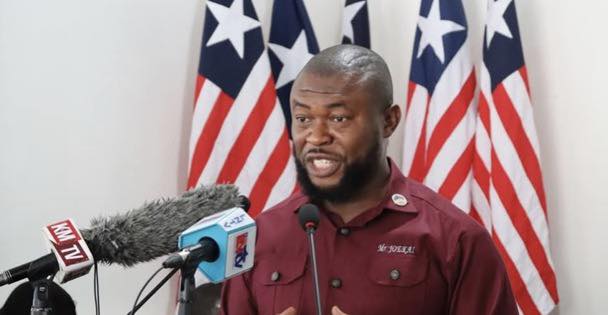Foreigners Occupied Over Seven Thousand Jobs Reserve for Liberians CSA Work Permit Analysis Reveals

June 18, 2025
By Laymah Kollie
Capitol hill: A thorough Analysis has revealed that Foreigners Occupied Over Seven Thousand Jobs Reserve for Liberians
Presenting the analysis to Plenary on Tuesday, June 18, 2025, Civil Service Agency Director Joseph Joekai revealed that 7,032 Jobs meant for Liberians have been given to Aliens through work permit issued by the Labor Ministry in 2024
The analysis showed that AFCONS, Bea Mountain and Arcelor Mittal are major employers of foreigners in Liberia.
The number of aliens employed by companies shows AFCONS- 3319, BEA Mountain-1895 and Arcelor Mittal-728. The CSA report submitted to the Liberian Senate provide an in-depth analysis of the issuance of work permits to foreign nationals in Liberia.
It evaluates the current practices against the foundational principles and specific provisions of the Decent Work Act (DWA) of 2015, particularly Chapters 45.1 and 45.5, which underscore the paramount importance of prioritizing Liberian citizens for employment opportunities.
The report aims to identify areas of non-compliance, assess the implications for the Liberian labor market, and propose actionable recommendations to foster a more equitable and sustainable employment landscape for Liberian citizens.
The Work Permit Requirement Chapter 45.1 stipulates that “An employer shall not employ a foreign worker unless they possess a current work permit issued by the Ministry of Labor
This fundamental requirement serves as the cornerstone for regulating foreign employment, enabling the Ministry to monitor the influx of foreign labor and ensure adherence to national labor standards.
Employers are legally obligated to verify the validity of work permits before engaging foreign workers, demonstrating a commitment to due diligence and legal compliance.
Priority for Liberian Nationals Chapter 45.1(c) states: “The Ministry shall not issue a permit to work in Liberia unless it is satisfied that there is no suitably qualified Liberian available to carry out the work required by the employer.”
This provision establishes the principle of Liberalization within the labor market. It mandates that the Ministry of Labor thoroughly assess the availability of qualified Liberian nationals for any given role before authorizing the employment of a foreign worker.
This is intended to protect and promote local employment, preventing displacement and fostering the development of indigenous (home-grown, local/domestic) skills.
The legal framework governing the employment of foreign nationals in Liberia is enshrined in the Decent Work Act (DWA), which repealed and replaced previous labor laws.
The relevant provisions are as follows: Equal Treatment of Foreign Workers Chapter 45.5 affirms: “A foreign worker resident in Liberia is entitled to enjoy all benefits of this Act, provided that the provisions of this Act shall not discriminate against Liberian workers.”
This provision ensures that foreign workers legally employed in Liberia receive the same rights and protections as Liberian workers. However, it also emphasizes that this must not compromise employment opportunities or working conditions for Liberian citizens. Maintaining this balance is crucial for fair labor practices and preventing discrimination against the local workforce.
During the period January 1,2024 to December 31,2024, a total of 10,103 work permits were issued to foreign nationals in Liberia. These permits were issued in three categories: Regular Permits – 8792 (87.02%): These permits are typically issued for long-term employment in various sectors, subject to the Ministry’s assessment of local availability. • ECOWAS Permits – 438 (4.34%): Issued to citizens of member states of the Economic Community of West African States (ECOWAS), these permits facilitate regional labor mobility under specific agreements.
•GRATIS Permits – 873 (8.64%): Often granted for humanitarian, non-profit, or specialized roles, primarily within Non-Governmental Organizations (NGOs) or for individuals providing services to the Liberian government without direct remuneration from a private employer.
Director Joekai outlined the following risks associated with this problem. He stated that Influx of foreign labor into sectors where local talent is available has the power to diminish economic opportunities for Liberians and constrained national workforce utilization.
This situation could discourage Liberians from acquiring higher education and weaken efforts to build a self-reliant workforce. It also states that high presence of foreign labor may lead to stagnation or lower wages for Liberian workers, a threat to the economic security of the local labor force and the erosion of Public Trust.
Based on the CSA findings, Senate Plenary requested the committee on Labor at the House to document a detailed report and present to Plenary on next week Tuesday for the August body to make a decision.



